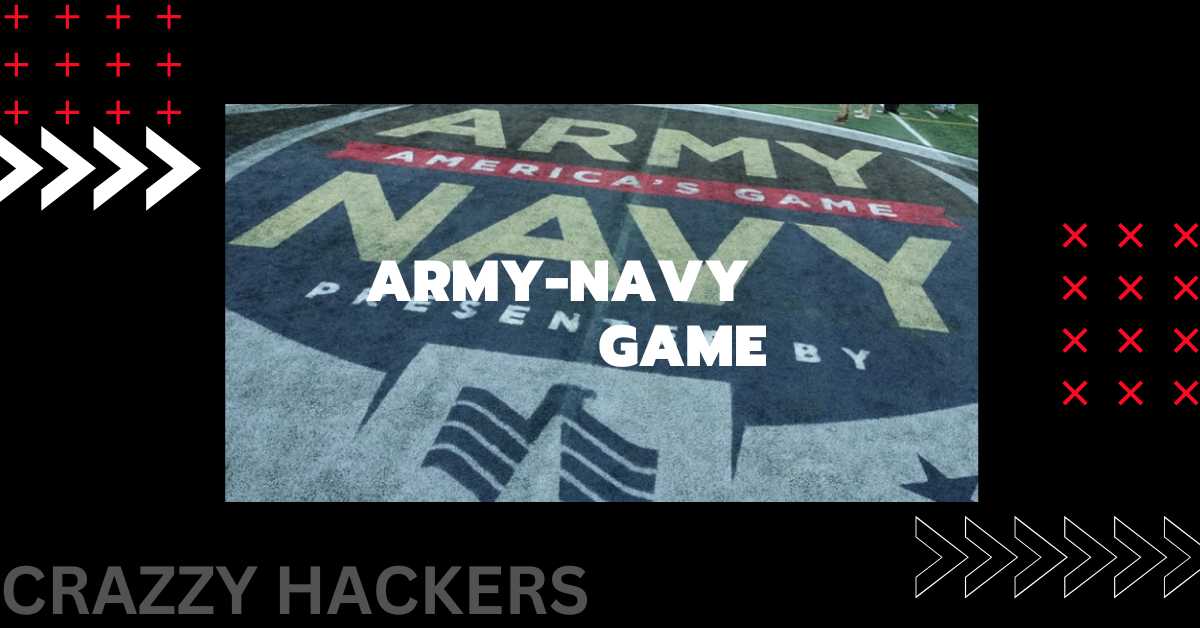Belichick also recounted his memories of the 1967 Army-Navy game to Corso, recalling how Corso’s offense ended Navy’s win with aggressive play-calling, which stuck with Belichick.
Fans filled the stands hours before kickoff as there was plenty to see in the pre-game lead-up, including both schools’ march-on and Patriot Games finale that provided an obstacle course finale for participants. The school’s two parachute teams, the Leapfrogs and Golden Knights, made pin-point landings on the field, and then two flyovers, involving a fleet of jets for the Navy and a fleet of helicopters for the Army, as the teams When he took over the field, there was a buzz from above. Energy in the stadium for the opening coin toss
Both teams adopted a run-heavy approach as the contest began, with few downfield shots at key times. The first big play of the game came when Navy took one of its passing shots down the field, but Army safety Max DiDomenico read the play all the way and picked off the pass at the five-yard line and returned it to Army. 35 yards. line
Army would then go on a 12-play, 65-yard scoring drive that ate up more than seven minutes of game time. Quarterback Bryson Daly fired a pass to tight end Tyson Riley from four yards out for a touchdown that gave Army a 7-0 lead early in the second quarter.
Navy made a change at quarterback after four unsuccessful first-half drives, with Tai Lavatai and senior providing a spark as the Midshipmen put together their best drive of the day. It continued for nine plays, 45 yards until Army stopped Lavatai Short on a fourth down quarterback run at the Army 37-yard line.
Army would make the most of its final possession of the half, using six plays to go 34 yards, setting up a 47-yard field goal by Quinn Maritzky that gave the Cadets a 10-0 halftime lead.
The teams would continue to trade punts in the third quarter as neither could find a consistent rhythm for their respective offenses. Navy’s offense went three-and-out on their first possession of the second half, but on their second half, Lavatai took a keeper for 25 yards and broke their funk, giving the Midshipmen the biggest play of the day in the third quarter. provided the spark at the end. . He would add a 37-yard field goal to end the drive and cut Army’s lead to 10-3 early in the fourth quarter.
Navy was driving again late in the fourth, driving into Army territory and looking to tie the game with a touchdown when the game took a dramatic turn. Army-Navy Game linebacker Caleb Fortner stripped Lavatai of the ball and the Cadets returned it 44 yards for a touchdown.
The big play made it 17-3 Army with just under five minutes left, however, Navy would respond, executing a seven-play, 59-yard touchdown scoring drive but falling short of the two-point conversion. It was a gutsy drive at a critical time that made it another Army-Navy classic that ended in a one-score game, 17-9.
Army recovered the ensuing onside kick but Navy’s defense held strong, forcing a final punt. The Midshipmen took over at their own 25-yard line with 1:39 left. With no timeouts, Navy hit two big plays to drive into Army territory. Two more passing connections set up Navy with a first-and-goal opportunity inside the Army 10-yard line, bringing the Electric crowd to its feet for a heart-pounding finish.
Incompletions on first and second downs, leading to completions on third down, tackled the Navy receiver at the two-yard line. The clock continued to run as Navy rushed to the line on one last fourth down quarterback sneak. But it was stopped short of the goal line, giving Army a thrilling victory courtesy of a goal line stop. Army would use a safety to run out the final seconds to win 17-11.
Army’s win gave West Point its first overall Commander-in-Chief Trophy victory, its first since 2020 and its fourth overall, along with a win over Navy that upset Air Force earlier this season. from, and achieved an interesting success. and a groundbreaking ceremony at Gillette Stadium.






